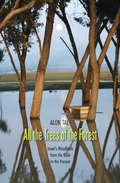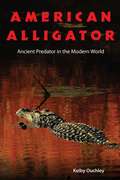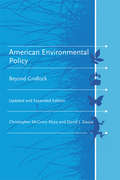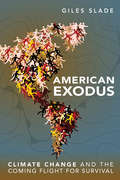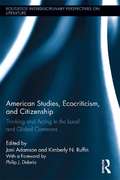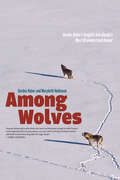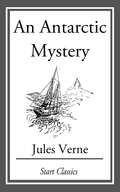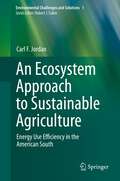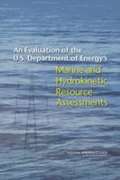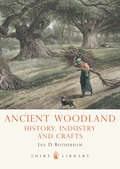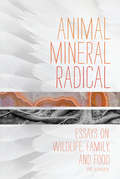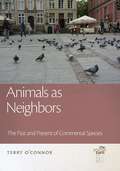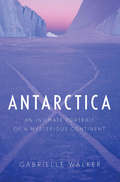- Table View
- List View
Advanced Custom Rod Building
by Dale P. ClemensConsidered the Bible of rod buildingEssential guide for fishermen making their own rodsEspecially useful for the experienced custom builder Have you ever wondered what it would feel like to have a rod that feels like a part of you and not just a tool? Have you ever wanted to make your own fishing rod that rivals those in stores? If you answered “yes” to either question, this book is absolutely for you. Dale P. Clemens encourages all fishermen to have a rod that is specifically customized for his or her style. Advanced Custom Rod Building is the guide you need to make your own. This guide highlights the key points needed to make tackle that is better than anything that could be bought in a store. It also includes clear illustrations, figures, and tables to help the experienced custom builder. Clemens shares techniques for building rods used in all conditions, whether light freshwater or heavy surf. Thanks to this book, building your own custom rod that will be beautiful and durable isn’t a mystery. Skyhorse Publishing is proud to publish a broad range of books for fishermen. Our books for anglers include titles that focus on fly fishing, bait fishing, fly-casting, spin casting, deep sea fishing, and surf fishing. Our books offer both practical advice on tackle, techniques, knots, and more, as well as lyrical prose on fishing for bass, trout, salmon, crappie, baitfish, catfish, and more. While not every title we publish becomes a New York Times bestseller or a national bestseller, we are committed to publishing books on subjects that are sometimes overlooked by other publishers and to authors whose work might not otherwise find a home.
Aerosols Handbook: Measurement, Dosimetry, and Health Effects, Second Edition
by Lev S. Ruzer Naomi H. HarleyWith the rapid growth of the nanotechnology industry, the need to understand the biological effects of aerosol exposure has become increasingly important. Featuring contributions by leading experts in the field, Aerosols Handbook: Measurement, Dosimetry, and Health Effects, Second Edition offers an up-to-date overview of many aspects of aerosols, f
Africa (Rookie Read-About Geography)
by Rebecca E. Hirsch<p>Get ready for a fascinating trip around the seven continents of the world! Simple, engaging text and colorful, mesmerizing pictures teach you about each continent's land features, populations, native animals, technological advances, and lots more—including how to find each continent on a map! <p>Africa is a large and diverse continent, and young readers will love discovering the people, geography, and animals found there.</p>
After the Grizzly: Endangered Species and the Politics of Place in California
by Peter S. AlagonaThoroughly researched and finely crafted, After the Grizzly traces the history of endangered species and habitat in California, from the time of the Gold Rush to the present. Peter S. Alagona shows how scientists and conservationists came to view the fates of endangered species as inextricable from ecological conditions and human activities in the places where those species lived. Focusing on the stories of four high-profile endangered species--the California condor, desert tortoise, Delta smelt, and San Joaquin kit fox--Alagona offers an absorbing account of how Americans developed a political system capable of producing and sustaining debates in which imperiled species serve as proxies for broader conflicts about the politics of place. The challenge for conservationists in the twenty-first century, this book claims, will be to redefine habitat conservation beyond protected wildlands to build more diverse and sustainable landscapes.
Agricultural Statistical Data Analysis Using Stata
by George BoyhanPractical statistics is a powerful tool used frequently by agricultural researchers and graduate students involved in investigating experimental design and analysis. One of the most widely used statistical analysis software packages for this purpose is Stata. The Stata software program has matured into a user-friendly environment with a wide variet
Alaska's Whaling Coast
by Dale VinnedgeIn 1850, commercial whaling ships entered the Bering Sea for the first time. There, they found the summer grounds of bowhead whales, as well as local Inuit people who had been whaling the Alaskan coast for 2,000 years. Within a few years, almost the entire Pacific fleet came north each June to find a path through the melting ice, and the Inuit way of whaling--in fact, their entire livelihood--would be forever changed. Baleen was worth nearly $5 a pound. But the new trading posts brought guns, alcohol, and disease. In 1905, a new type of whaling using modern steel whale-catchers and harpoon cannons appeared along the Alaskan coast. Yet the Inuit and Inupiat continue whaling today from approximately 15 small towns scattered along the Arctic Ocean and the Bering Strait. Whaling for these people is a life-or-death proposition in a land considered uninhabitable by many, for without the whale, whole villages probably could not survive as they have for centuries.
Alexander Wilson: The Scot Who Founded American Ornithology
by Edward H. Burtt William E. Davis Jr.Audubon was not the father of American ornithology. That honorific belongs to Alexander Wilson, whose encyclopedic American Ornithology established a distinctive approach that emphasized the observation of live birds. In the first full-length study to reproduce all of Wilson's unpublished drawings for the nine-volume Ornithology, Edward Burtt and William Davis illustrate Wilson's pioneering and, today, underappreciated achievement as the first ornithologist to describe the birds of the North American wilderness. Abandoning early ambitions to become a poet in the mold of his countryman Robert Burns, Wilson emigrated from Scotland to settle near Philadelphia, where the botanist William Bartram encouraged his proclivity for art and natural history. Wilson traveled 12,000 miles on foot, on horseback, in a rowboat, and by stage and ship, establishing a network of observers along the way. He wrote hundreds of accounts of indigenous birds, discovered many new species, and sketched the behavior and ecology of each species he encountered. Drawing on their expertise in both science and art, Burtt and Davis show how Wilson defied eighteenth-century conventions of biological illustration by striving for realistic depiction of birds in their native habitats. He drew them in poses meant to facilitate identification, making his work the model for modern field guides and an inspiration for Audubon, Spencer Fullerton Baird, and other naturalists who followed. On the bicentennial of his death, this beautifully illustrated volume is a fitting tribute to Alexander Wilson and his unique contributions to ornithology, ecology, and the study of animal behavior.
All Natural: A Skeptic's Quest to Discover if the Natural Approach to Diet, Childbirth, Healing, and the Environment Really Keeps Us Healthier and Happier
by Nathanael JohnsonIn this age of climate change, killer germs, and obesity, it's easy to feel as if we've fallen out of sync with the global ecosystem. This ecological anxiety has polarized a new generation of Americans: many are drawn to natural solutions and organic lifestyles, while others rally around high-tech development and industrial efficiencies. Johnson argues that both views, when taken to extremes, can be harmful, even deadly. Johnson, raised in the crunchy-granola epicenter of Nevada City, California, lovingly and rigorously scrutinizes his family's all-natural mindset, a quest that brings him into the worlds of an outlaw midwife, radical doctors, renegade farmers and one hermit forester. Along the way, he uncovers paradoxes at the heart of our ecological condition: Why, even as medicine improves, are we becoming less healthy? Why are more American women dying in childbirth? Why do we grow fatter the more we diet? Why have so many attempts to save the environment backfired?In this sparklingly intelligent, wry, and scrupulously reported narrative, Johnson teases fact from faith and offers a rousing and original vision for a middle ground between natural and technological solutions that will assuage frustrated environmentalists, perplexed parents, and confused consumers alike.
All the Trees of the Forest
by Alon TalIn this insightful and provocative book, Alon Tal provides a detailed account of Israeli forests, tracing their history from the Bible to the present, and outlines the effort to transform drylands and degraded soils into prosperous parks, rangelands, and ecosystems. Tal’s description of Israel’s trials and errors, and his exploration of both the environmental history and the current policy dilemmas surrounding that country's forests, will provide valuable lessons in the years to come for other parts of the world seeking to reestablish timberlands.
Amazing Plant Bodies: Tiny To Gigantic (Into Reading, Read Aloud Module 9 #3)
by Ellen LawrenceNIMAC-sourced textbook <P><P>Most plants have roots, stems, and leaves. Many grow flowers, seeds, and fruits. Some plants, however, have developed spectacular examples of these plant parts! From the longest roots in the world to the biggest seeds, this fact-filled volume looks at the biggest, smallest, weirdest, and most unusual plant parts in the world! Filled with information perfectly suited to the abilities and interests of an early elementary audience, this colorful, fact-filled volume gives readers a chance not only to learn, but also to develop their powers of observation and critical thinking. From fascinating images to high-interest facts, this book makes learning about plant bodies a lively and engaging experience. Amazing Plant Bodies: Tiny to Gigantic is part of Bearport's Plant-ology series. <P><P>Lexile Measure: IG590L
American Alligator: Ancient Predator in the Modern World
by Kelby OuchleyHaving survived since the Mesozoic era, alligators teetered on the brink of extinction in the 1960s. Their recovery in the 1970s was largely due to legislative intervention, and today populations are closely monitored throughout their range. American Alligator is the most up-to-date and comprehensive treatment of this resilient relic, a creature with a brain weighing less than half an ounce that has successfully adapted to a changing Earth for more than 200 million years.Kelby Ouchley chronicles the evolution of A. mississippiensis from "shieldcroc"--the last common ancestor of modern-day alligators, crocodiles, caimans, and gavials--to its current role as keystone of the ecological health of America's southern swamps and marshes. In Florida, the apex predator uses its snout and feet to clear muck from holes in the limestone bedrock. During the dry season, these small ponds or "alligator holes" provide refuge, food, and water for a variety of wildlife. In Louisiana, millions of dollars are spent on the bounty of the non-native nutria that overgraze marsh vegetation, but alligators prey on these coastal rodents free of charge.The loss of the American alligator would be a blow to biodiversity and an ecosystem disruption affecting all levels of the food chain. While the U.S. Fish and Wildlife Service removed it from the endangered species list in 1987 and today regulates the legal trade of the animal and its products, Ouchley cautions us not to forget the lessons learned: human activities, from urban development to energy production, can still threaten the future of the gator and its southern wetland habitat.
American Environmental Policy, updated and expanded edition: Beyond Gridlock (American and Comparative Environmental Policy)
by Christopher Mcgrory Klyza David J. SousaAn updated investigation of alternate pathways for American environmental policymaking made necessary by legislative gridlock. The “golden era” of American environmental lawmaking in the 1960s and 1970s saw twenty-two pieces of major environmental legislation (including the Clean Air Act, the Clean Water Act, and the Endangered Species Act) passed by bipartisan majorities in Congress and signed into law by presidents of both parties. But since then partisanship, the dramatic movement of Republicans to the right, and political brinksmanship have led to legislative gridlock on environmental issues. In this book, Christopher Klyza and David Sousa argue that the longstanding legislative stalemate at the national level has forced environmental policymaking onto other pathways.Klyza and Sousa identify and analyze five alternative policy paths, which they illustrate with case studies from 1990 to the present: “appropriations politics” in Congress; executive authority; the role of the courts; “next-generation” collaborative experiments; and policymaking at the state and local levels. This updated edition features a new chapter discussing environmental policy developments from 2006 to 2012, including intensifying partisanship on the environment, the failure of Congress to pass climate legislation, the ramifications of Massachusetts v. EPA, and other Obama administration executive actions (some of which have reversed Bush administration executive actions). Yet, they argue, despite legislative gridlock, the legacy of 1960s and 1970s policies has created an enduring “green state” rooted in statutes, bureaucratic routines, and public expectations.
American Exodus
by Giles SladeAs temperatures rise, declines in agricultural production and freshwater supply will diminish US carrying capacity by 2/3, and rising sea levels will impact the country's most densely populated regions. A frightening survey of what's to come, American Exodus argues that mankind can survive the coming century of climate chaos if we act quickly to preserve our shelter of last resort.
American Studies, Ecocriticism, and Citizenship: Thinking and Acting in the Local and Global Commons (Routledge Interdisciplinary Perspectives on Literature)
by Philip J. Deloria Joni Adamson Kimberly N. RuffinThis collection reclaims public intellectuals and scholars important to the foundational work in American Studies that contributed to emerging conceptions of an "ecological citizenship" advocating something other than nationalism or an "exclusionary ethics of place." Co-editors Adamson and Ruffin recover underrecognized field genealogies in American Studies (i.e. the work of early scholars whose scope was transnational and whose activism focused on race, class and gender) and ecocriticism (i.e. the work of movement leaders, activists and scholars concerned with environmental justice whose work predates the 1990s advent of the field). They stress the necessity of a confluence of intellectual traditions, or "interdisciplinarities," in meeting the challenges presented by the "anthropocene," a new era in which human beings have the power to radically endanger the planet or support new approaches to transnational, national and ecological citizenship. Contributors to the collection examine literary, historical, and cultural examples from the 19th century to the 21st. They explore notions of the common—namely, common humanity, common wealth, and common ground—and the relation of these notions to often conflicting definitions of who (or what) can have access to "citizenship" and "rights." The book engages in scholarly ecological analysis via the lens of various human groups—ethnic, racial, gendered, coalitional—that are shaping twenty-first century environmental experience and vision. Read together, the essays included in American Studies, Ecocriticism, and Citizenship create a "methodological commons" where environmental justice case studies and interviews with activists and artists living in places as diverse as the U.S., Canada, Haiti, Puerto Rico, Taiwan and the Navajo Nation, can be considered alongside literary and social science analysis that contributes significantly to current debates catalyzed by nuclear meltdowns, oil spills, hurricanes, and climate change, but also by hopes for a common future that will ensure the rights of all beings--human and nonhuman-- to exist, maintain, and regenerate life cycles and evolutionary processes
Among Wolves: Gordon Haber's Insights into Alaska's Most Misunderstood Animal
by Marybeth Holleman Gordon HaberAlaska’s wolves lost their fiercest advocate, Gordon Haber, when his research plane crashed in Denali National Park in 2009. Passionate, tenacious, and occasionally brash, Haber, a former hockey player and park ranger, devoted his life to Denali’s wolves. He weathered brutal temperatures in the wild to document the wolves and provided exceptional insights into wolf behavior. Haber’s writings and photographs reveal an astonishing degree of cooperation between wolf family members as they hunt, raise pups, and play, social behaviors and traditions previously unknown. With the wolves at risk of being destroyed by hunting and trapping, his studies advocated for a balanced approach to wolf management. His fieldwork registered as one of the longest studies in wildlife science and had a lasting impact on wolf policies. Haber’s field notes, his extensive journals, and stories from friends all come together in Among Wolves to reveal much about both the wolves he studied and the researcher himself. Wolves continue to fascinate and polarize people, and Haber’s work continues to resonate.
An Antarctic Mystery
by Jules VerneIn the year 1839, Mr. Jeorling, whose geological and mineralogical research have led him to the Kerguelen sub-Antarctic archipelago in the Indian Ocean, sets sail on the "Halbrane", whose captain Len Guy is obsessed with Edgar Allan Poe's novel "The Narrative of Arthur Gordon Pym". --- In that narrative, Poe recounts the adventures of Len Guy's brother William Guy who as captain of the "Jane" was persuaded by Arthur Gordon Pym to direct an expedition to the Antarctic. The "Jane" vanished on this voyage, though Pym was still able to pass along his diary to Edgar Allen Poe. --- Increasingly persuaded of the truthfulness of the tale, Mr. Jeorling encourages Captain Len Guy to pursue his brother - whom they believe may still be alive - into the Antarctic. --- Aside from the natural perils of the ocean, they must also face down a mutiny of the sailors on the "Halbrane".
An Archaeology of Sympathy: The Sentimental Mode in Literature and Cinema
by James ChandlerIn the middle of the eighteenth century, something new made itself felt in European culture—a tone or style that came to be called the sentimental. The sentimental mode went on to shape not just literature, art, music, and cinema, but people’s very structures of feeling, their ways of doing and being. In what is sure to become a critical classic, An Archaeology of Sympathy challenges Sergei Eisenstein’s influential account of Dickens and early American film by tracing the unexpected history and intricate strategies of the sentimental mode and showing how it has been reimagined over the past three centuries. James Chandler begins with a look at Frank Capra and the Capraesque in American public life, then digs back to the eighteenth century to examine the sentimental substratum underlying Dickens and early cinema alike. With this surprising move, he reveals how literary spectatorship in the eighteenth century anticipated classic Hollywood films such as Capra’s It Happened One Night, Mr. Deeds Goes to Town, and It’s a Wonderful Life. Chandler then moves forward to romanticism and modernism—two cultural movements often seen as defined by their rejection of the sentimental—examining how authors like Mary Shelley, Joseph Conrad, James Joyce, and Virginia Woolf actually engaged with sentimental forms and themes in ways that left a mark on their work. Reaching from Laurence Sterne to the Coen brothers, An Archaeology of Sympathy casts new light on the long eighteenth century and the novelistic forebears of cinema and our modern world.
An Ecosystem Approach to Sustainable Agriculture: Energy Use Efficiency in the American South (Environmental Challenges and Solutions #1)
by Carl F. JordanModern industrial agriculture is not sustainable because of its heavy reliance on petroleum, a non-renewable source of the energy used in farming, and because of pollution caused by petroleum products such as fertilizers and pesticides. A systems analysis of farming suggests that agriculture will be more sustainable when services of nature, such as nutrient recycling by soil micro-organisms and natural controls of insects, replace the services now provided by energy from petroleum. Examples are drawn from the Southeastern USA, but lessons learned can be applied worldwide.
An Eden of Sorts: The Natural History of My Feral Garden
by John Hanson MitchellTwenty-five years ago John Hanson Mitchell cut down a 1 1/2-acre stand of seventy-five-year-old white pines and planted a garden in their place. An Eden of Sorts is a history of the plants and animals that lived on the tract over the next decades. In a survey he made before taking down the pines, Mitchell counted no more than five or six flowering plants and shrubs. Over the years he created a series of fanciful garden "rooms" in the Italian style. Now, in addition to an intriguing garden of earthly delights, he has recorded more than one thousand species of plants and animals on the property. This is a paradoxical yet hopeful narrative of what can happen to a plot of land when it is properly managed.
An Environmental History of Russia
by Paul Josephson Nicolai Dronin Aleh Cherp Ruben Mnatsakanian Dmitry Efremenko Vladislav LarinThe former Soviet empire spanned eleven time zones and contained half the world's forests; vast deposits of oil, gas and coal; various ores; major rivers such as the Volga, Don and Angara; and extensive biodiversity. These resources and animals, as well as the people who lived in the former Soviet Union – Slavs, Armenians, Georgians, Azeris, Kazakhs and Tajiks, indigenous Nenets and Chukchi – were threatened by environmental degradation and extensive pollution. This environmental history of the former Soviet Union explores the impact that state economic development programs had on the environment. The authors consider the impact of Bolshevik ideology on the establishment of an extensive system of nature preserves, the effect of Stalinist practices of industrialization and collectivization on nature, and the rise of public involvement under Khrushchev and Brezhnev, and changes to policies and practices with the rise of Gorbachev and the break-up of the USSR.
An Evaluation of the U.S. Department of Energy’s Marine and Hydrokinetic Resource Assessments
by Marine Hydrokinetic Energy Technology Assessment CommitteeIncreasing renewable energy development, both within the United States and abroad, has rekindled interest in the potential for marine and hydrokinetic (MHK) resources to contribute to electricity generation. These resources derive from ocean tides, waves, and currents; temperature gradients in the ocean; and free-flowing rivers and streams. One measure of the interest in the possible use of these resources for electricity generation is the increasing number of permits that have been filed with the Federal Energy Regulatory Commission (FERC). As of December 2012, FERC had issued 4 licenses and 84 preliminary permits, up from virtually zero a decade ago. However, most of these permits are for developments along the Mississippi River, and the actual benefit realized from all MHK resources is extremely small. The first U. S. commercial gridconnected project, a tidal project in Maine with a capacity of less than 1 megawatt (MW), is currently delivering a fraction of that power to the grid and is due to be fully installed in 2013. As part of its assessment of MHK resources, DOE asked the National Research Council (NRC) to provide detailed evaluations. In response, the NRC formed the Committee on Marine Hydrokinetic Energy Technology Assessment. As directed in its statement of task (SOT), the committee first developed an interim report, released in June 2011, which focused on the wave and tidal resource assessments (Appendix B). The current report contains the committee's evaluation of all five of the DOE resource categories as well as the committee's comments on the overall MHK resource assessment process. This summary focuses on the committee's overarching findings and conclusions regarding a conceptual framework for developing the resource assessments, the aggregation of results into a single number, and the consistency across and coordination between the individual resource assessments. Critiques of the individual resource assessment, further discussion of the practical MHK resource base, and overarching conclusions and recommendations are explained in An Evaluation of the U. S. Department of Energy's Marine and Hydrokinetic Resource Assessment.
Ancient Woodland: History, Industry and Crafts
by Ian RotherhamCONTRARY TO POPULAR BELIEF, Britain's ancient woodlands are not 'wildwoods', or even remnants of 'wildwood'. These truly cultural landscapes mix nature and human history, woven as uniquely rich tapestries of ecology and history. The story of the woods is there to be 'read' if you have time, enthusiasm, and this book, which will take you from prehistory to the present day.
Animal, Mineral, Radical: Essays on Wildlife, Family, and Food
by Bk Loren"Radical, before it meant a person who advocates strong political reform, meant getting to the root of things, the origin. It comes from the Latin radix, radicis,, meaning radish, a root vegetable."-BK LorenThese meditative essays range in subjects from a transcendental encounter with a pack of coyotes ironically juxtaposed with her neighbor's claim that nature "has gone out of vogue," to Loren's mother's slow yet all-encompassing deterioration from Parkinson's, and the unexpected way the Loma Prieta earthquake eroded her depression by offering the author a sense of her small place in a wild and worthwhile world.Loren has an empathetic and gentle approach to the world. In detailing the intricacies of human relationships and consciousness-fear of death and time, cooperation born of clashing viewpoints, tradition's beauty even when destructive, a love of language, a sense of loss amid the fast-paced materialistic world-she peels back the film of popular thinking in order to expose herself to the secrets so few of us ever see.
Animals as Neighbors: The Past and Present of Commensal Animals (The Animal Turn)
by Terry O'ConnorIn this fascinating book, Terry O’Connor explores a distinction that is deeply ingrained in much of the language that we use in zoology, human-animal studies, and archaeology—the difference between wild and domestic. For thousands of years, humans have categorized animals in simple terms, often according to the degree of control that we have over them, and have tended to see the long story of human-animal relations as one of increasing control and management for human benefit. And yet, around the world, species have adapted to our homes, our towns, and our artificial landscapes, finding ways to gain benefit from our activities and so becoming an important part of our everyday lives. These commensal animals remind us that other species are not passive elements in the world around us but intelligent and adaptable creatures. Animals as Neighbors shows how a blend of adaptation and opportunism has enabled many species to benefit from our often destructive footprint on the world. O’Connor investigates the history of this relationship, working back through archaeological records. By requiring us to take a multifaceted view of human-animal relations, commensal animals encourage a more nuanced understanding of those relations, both today and throughout the prehistory of our species.
Antarctica: An Intimate Portrait of a Mysterious Continent
by Gabrielle WalkerThe acclaimed science writer presents a wide-ranging exploration of Antarctica&’s history, nature, and global significance in this &“rollicking good read&” (Kirkus). From the early expeditions of Ernest Shackleton to David Attenborough&’s documentary series Frozen Planet, the continent of Antarctica has captured the world&’s imagination. After the Antarctic Treaty of 1961, decades of scientific research revealed the true extent of its many mysteries. Now former Nature magazine staff writer Gabrielle Walker tells the full story of Antarctica—from its fascinating history to its uncertain future and the international teams of researchers who brave its forbidding climate. Drawing on her broad travels across the continent, Walker weaves all the significant threads of life on the vast ice sheet into a multifaceted narrative, illuminating what it really feels like to be there and why it draws so many different kinds of people. She chronicles cutting-edge science experiments, visits to the South Pole, and unsettling portents about our future in an age of global warming. &“We are all anxious Antarctic watchers now, and Walker's book is the essential primer.&”—The Guardian, UK
